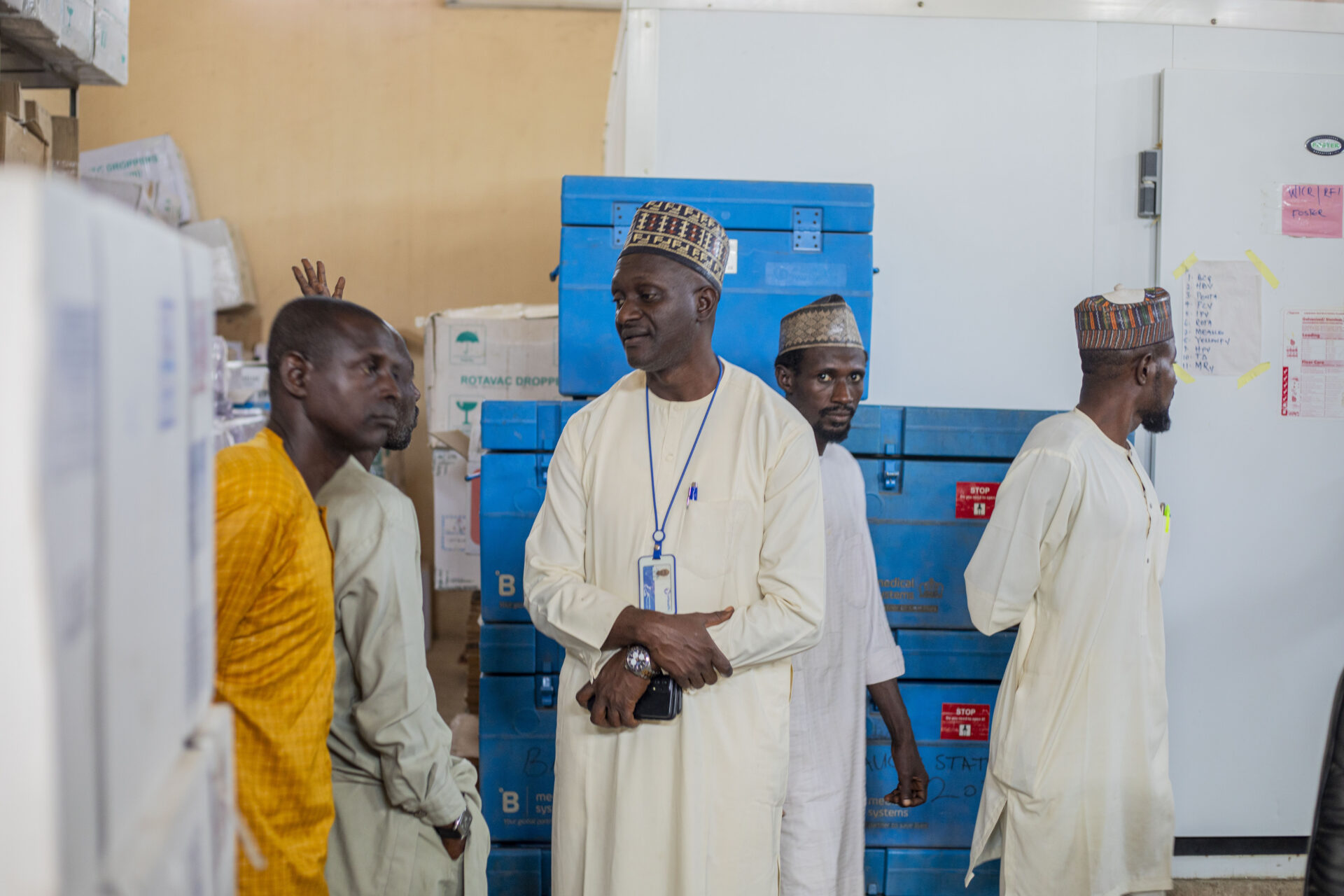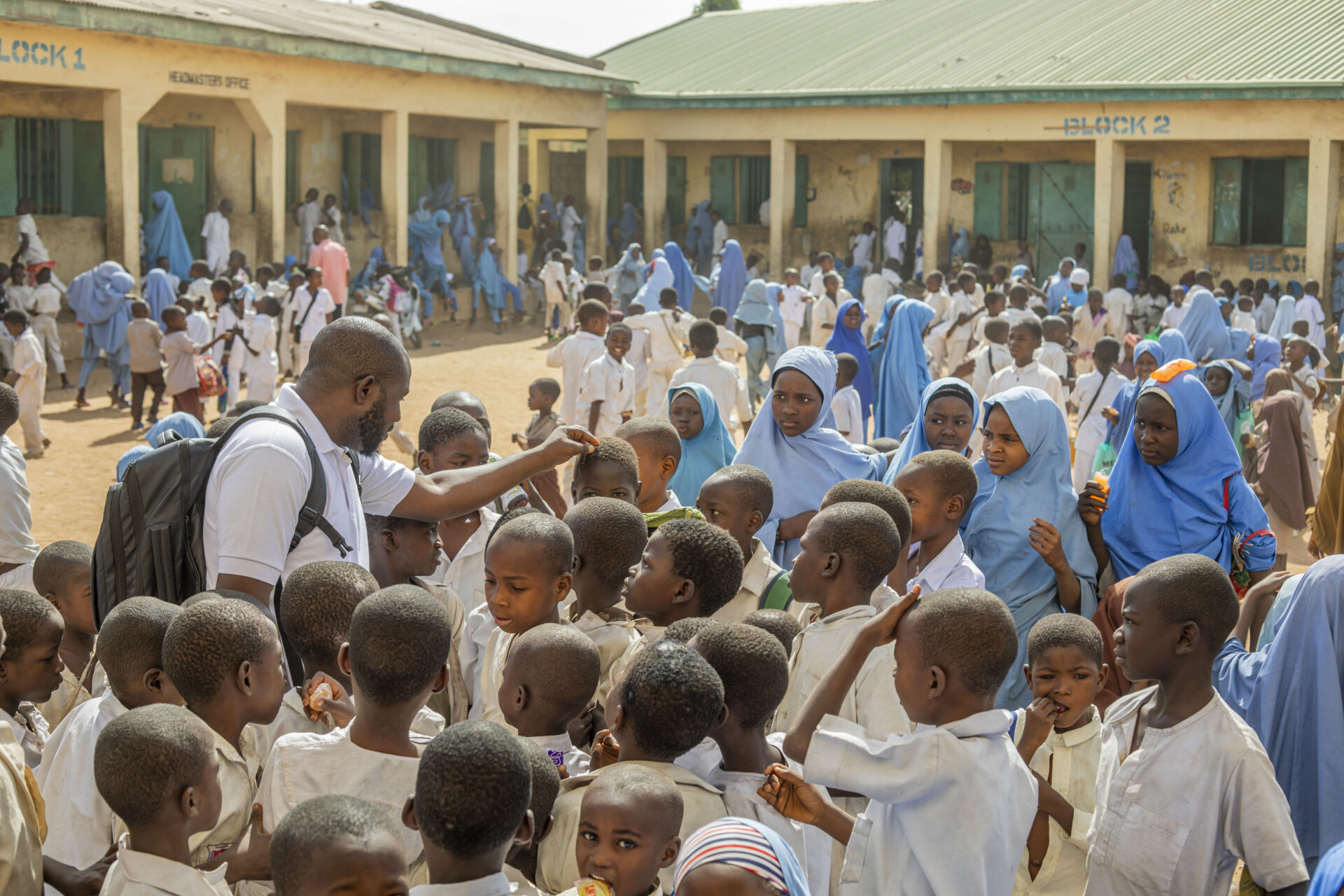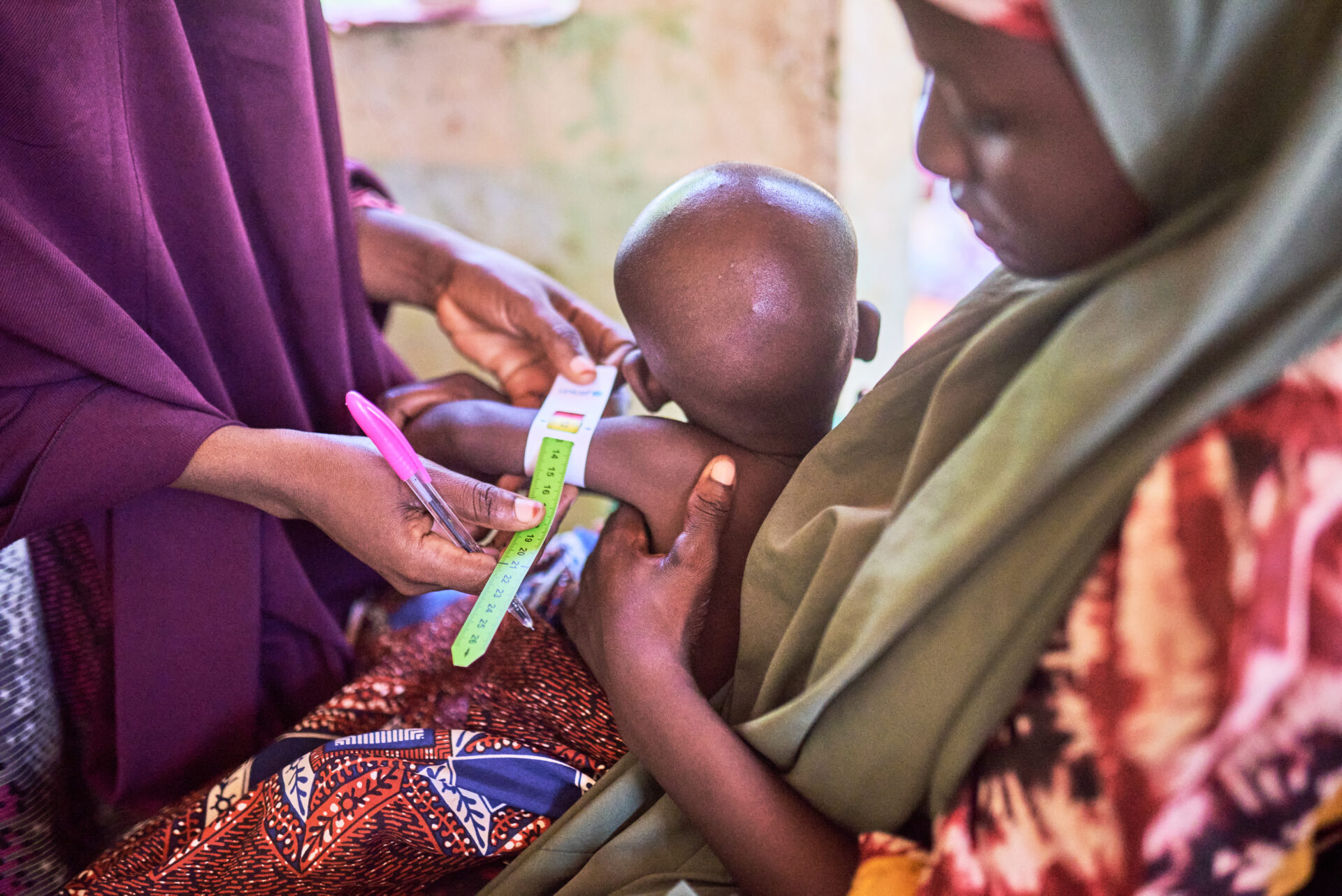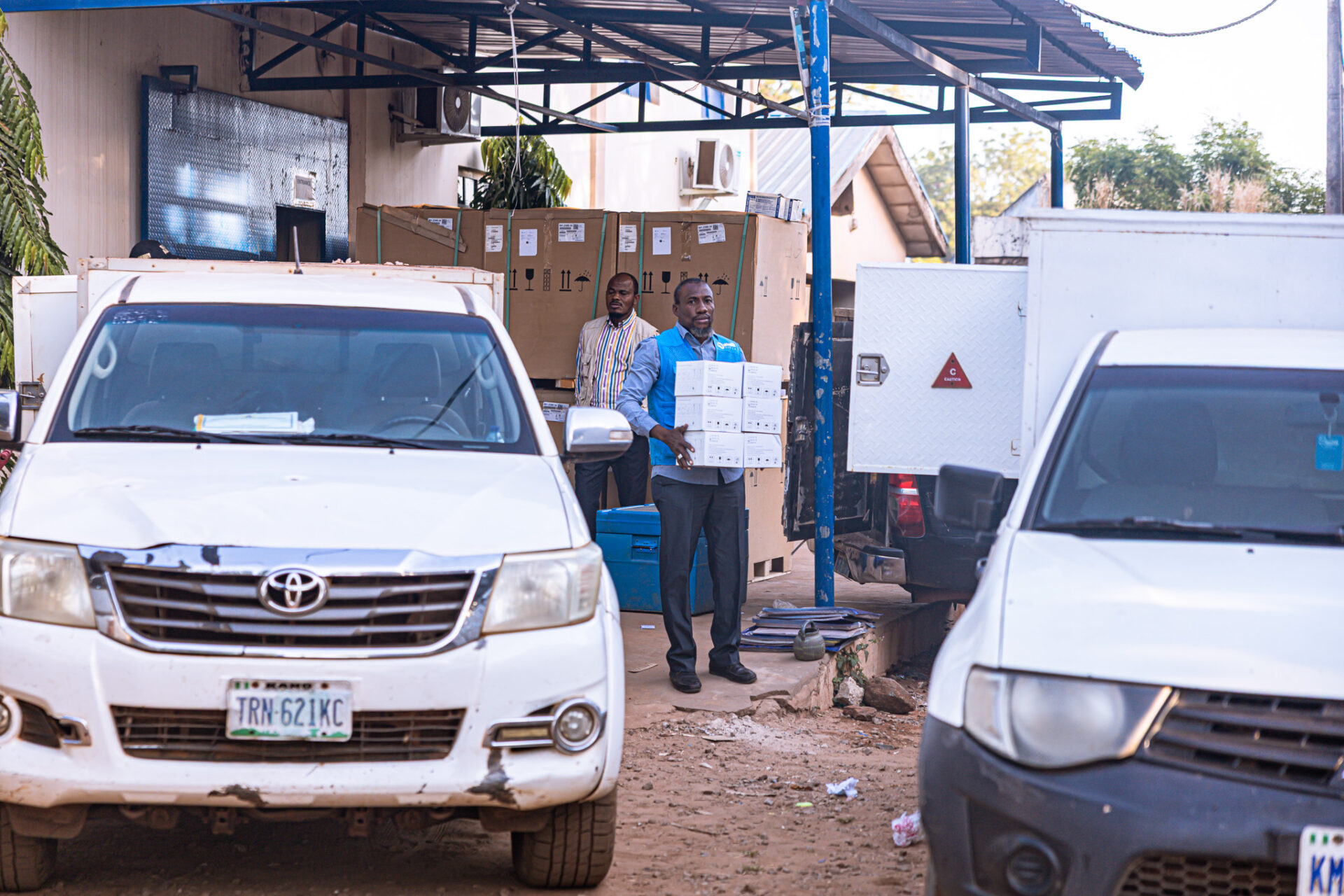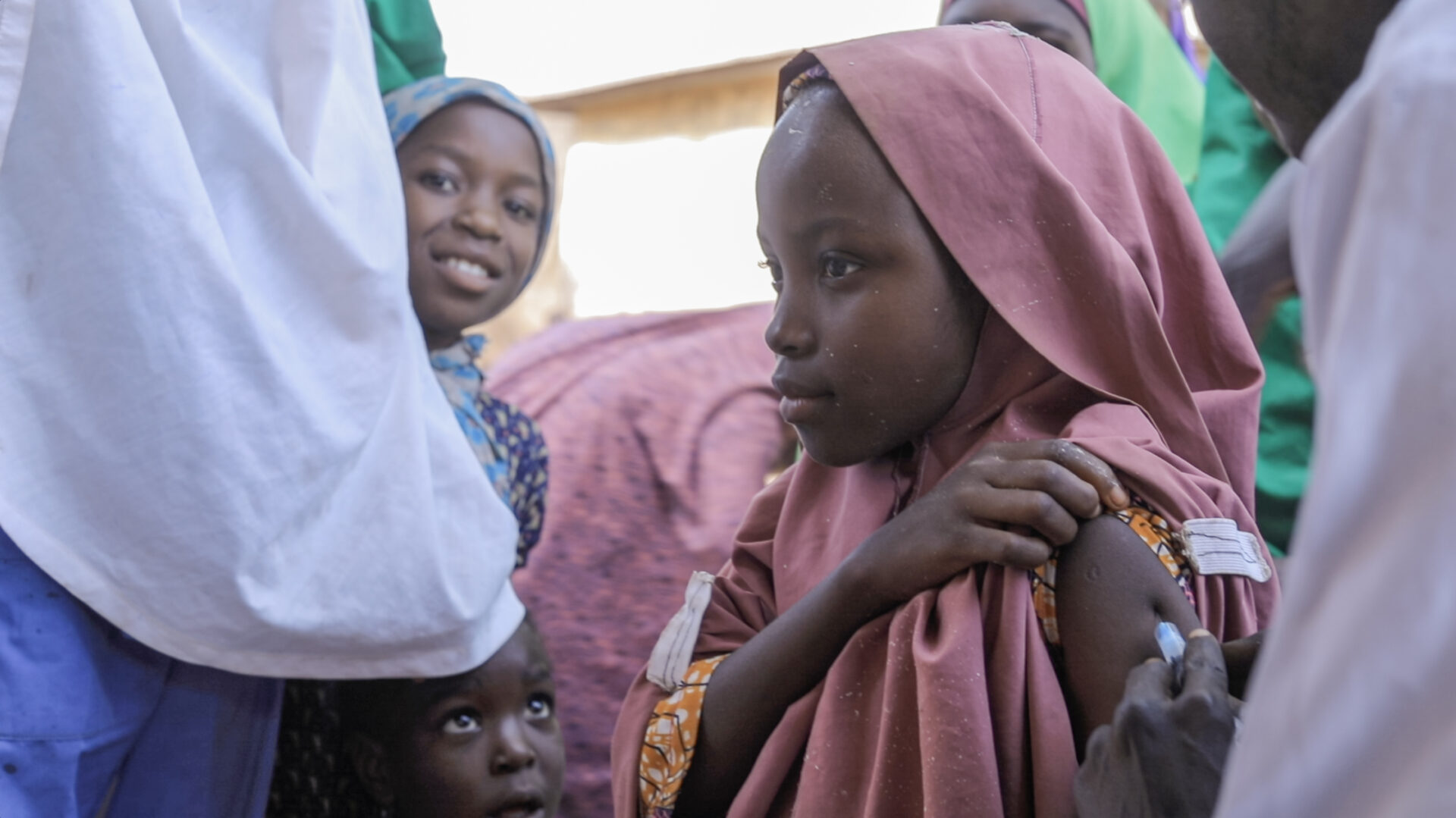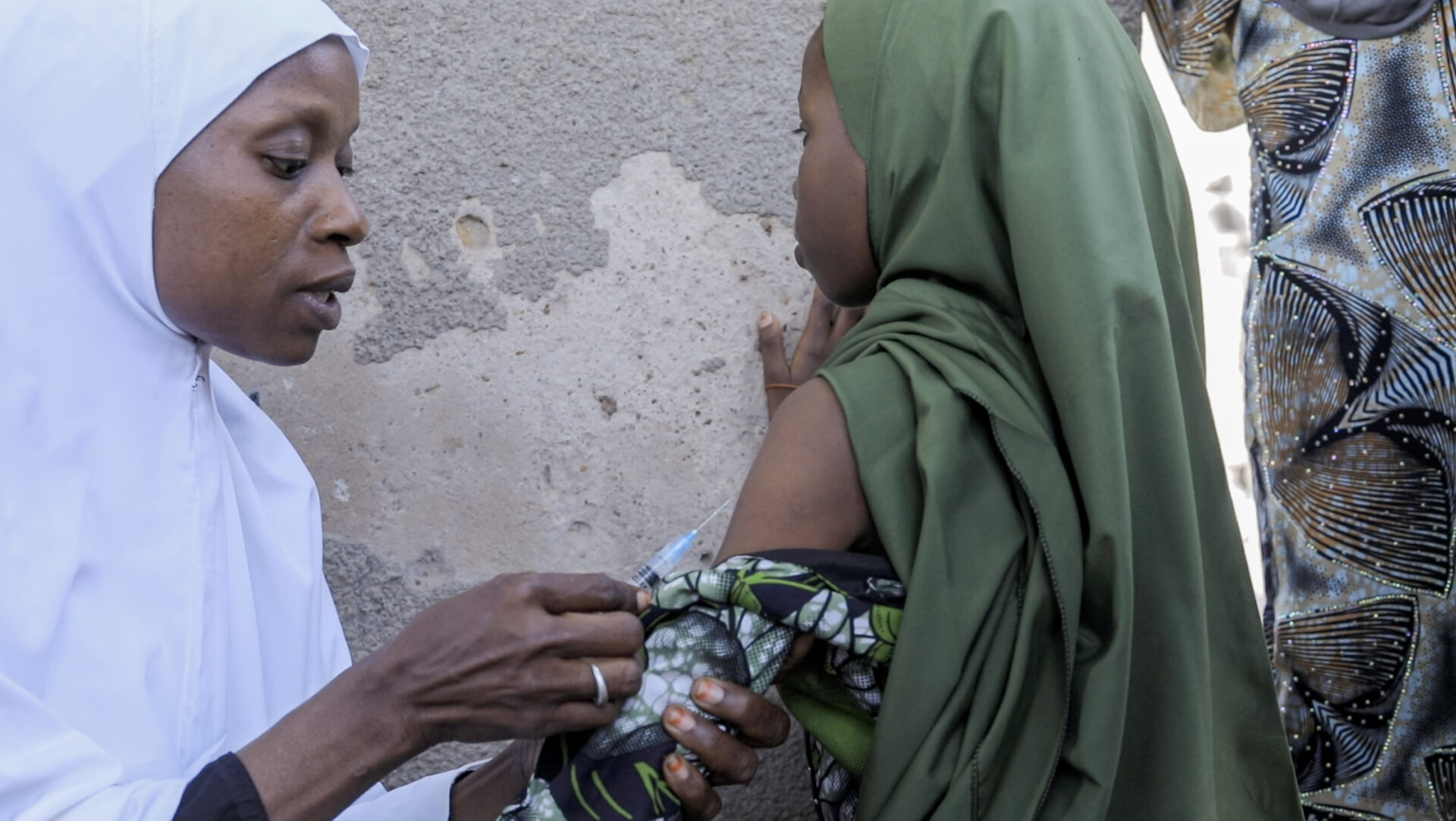May 20, 2025
No Missed Child, No Rejection of Vaccines”: A Traditional Leader’s Voice in Vaccine Advocacy


By Joyce Shinyi
“I once told vaccinators that if you find even one household that refuses vaccines in this community, I will give you $200. They went around and found none.”
– Alhaji Sani Umar Jabdi, District Head of Gagi and Sarkin Yakin Gagi, Sokoto State
In Gagi, a rural community in Sokoto State, Northern Nigeria, the fight against Circulating Variant Poliovirus and other vaccine-preventable diseases is being led not just from Primary Healthcare facilities, but also from the palaces of traditional leaders across the region.
Alhaji Sani Umar Jabdi is one of such leaders. Beyond settling community disputes, he has become a powerful advocate for immunization, championing vaccines as a means of protecting every child in his domain.
His commitment is part of the Engaging Traditional Institutions (ETI) project by eHealth Africa (eHA), in collaboration with the Sultan Foundation for Peace and Development, Chigari Foundation, and other key partners. The intervention has strengthened advocacy by traditional leaders, increased community ownership of polio eradication efforts, and reduced vaccine hesitancy in high-risk Northern states.
“I am a community gatekeeper,” Alhaji Umar Jabdi said. “My role is to bridge the gap between the community and service providers, the community and the government, between the community and development partners. This time, immunization is the top priority.”
“I ensure we reach out to every eligible child, no missed child, no rejections, and ensure we reach 100% coverage in immunization.”
In a bid to build visible trust through their leadership, Umar Jabdi and other district heads publicly immunize their children during campaign flag-offs. This method has been modeled by even the highest level of traditional leadership, like the Sultan of Sokoto. Following the Sultan’s lead, all 87 district heads in Sokoto did the same.
According to Alhaji Umar, “The Sultan loves all our children, he believes in vaccines, he is 100% sure that it protects from paralysis and deadly diseases, and we trust him 100%, so when he brings his child forward, we follow.”
Just like other communities, this strategy has paid off in Gagi. Vaccine acceptance is high! Community members trust the process because their leaders are part of it. “I once told evaluators that if you find even one household that refuses vaccines in this community, I will give you $200. They went around and found none.” Umar Jabdi boasted.
Through Engaging Traditional Institutions, traditional leaders like him are not only using their influence to improve vaccine uptake and support stronger community health systems, but are also receiving continuous technical support. “Under the Engaging Traditional Institutions intervention led by the Sultan Foundation (with support from eHealth Africa), we are mentored, coached, and trained regularly,” he says. “They visit palace by palace to guide us, correct us, and strengthen our ability to promote vaccination the right way.”
The visible results are hard to ignore. “This is the cold season, but we’ve not seen a whooping cough, we no longer see measles in our community. Routine immunization is working, and children are safe.” he says.
He calls for more support from other stakeholders to further boost success. “If more partners can support this engagement, we can expand outreach. We can engage more religious leaders, more women, town halls, traditional media, and even social media. There are rumors online that we need help countering.”
He also believes the model should expand to other traditional rulers who have not yet received the same capacity building. “Many of my colleagues are intelligent and capable, they just need the training and the opportunity. If we are empowered, we can protect our people better.”
Above all, he insists that community ownership is key. “If you come to our health facility today, you will see the evidence: zero home deliveries, children with immunization cards. The people are involved because they trust us.”
“We are doing this,” he says firmly, “and we will continue doing it until we die. No paralyzed child, no disease that could have been prevented.”
The Engaging Traditional Institutions intervention is positioning traditional rulers not just as custodians of culture, but as protectors of health. By building on existing trust, it is laying the foundation for stronger, more resilient health systems across underserved communities. For eHealth Africa, this kind of transformation is the goal of the Engaging Traditional Institutions project, using trusted traditional institutions to drive change in underserved communities.
